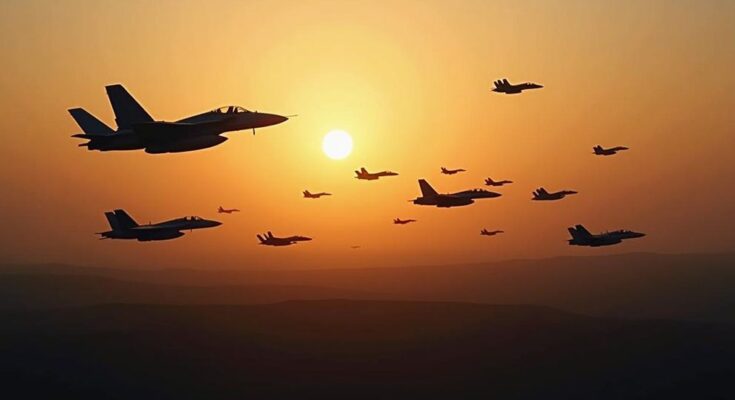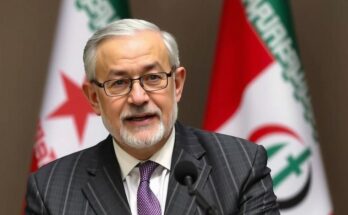Israel’s military has launched extensive airstrikes on Lebanon and Gaza, displacing thousands and leading to significant humanitarian needs. These actions have provoked international outrage and calls for a ceasefire, amid fears of escalating violence and humanitarian crises.
Recent tensions between Iran, Israel, and Lebanon have escalated dramatically, leading to significant military actions and humanitarian crises. Israel has intensified its aerial offensives on both Lebanon’s capital, Beirut, and the northern Gaza Strip, causing widespread devastation. A military report revealed that Israel conducted airstrikes targeting a former educational facility in Gaza, which was allegedly used by Hamas to coordinate operations against Israeli forces. Despite claims of minimizing civilian harm, repeated attacks on schools and shelters for war-displaced Palestinians have drawn international criticism, leading to investigations into potential acts of genocide by Israeli forces. The UN’s agency for Palestinian refugees has opened emergency shelters for thousands of those displaced in Lebanon, with reports indicating that Israeli military actions have resulted in the displacement of approximately 20,000 Palestinian refugees. Moreover, Israeli strikes on Gaza have left around 1.9 million individuals internally displaced, constituting 90 percent of the region’s population accounted for. In response to regional tensions, Iran’s leadership awarded a top military honor to a commander involved in a recent missile strike against Israel. Simultaneously, explosions were reported in Syria, attributed to suspected Israeli missile strikes in the Homs region, resulting in casualties. Continuous airstrikes in Beirut have caused panic and have hindered emergency services’ access to affected areas. Militant groups aligned with Iran have launched multiple assaults on Israeli positions in the Golan Heights, marking a significant escalation in cross-border military engagements following the launch of drones from Iraq that resulted in casualties among Israeli soldiers for the first time. Amid these developments, Palestinian militants in Gaza have also escalated their retaliatory actions against Israeli forces. UN officials have called for a ceasefire, stressing the urgent need for de-escalation to allow affected populations to return to safety. Filippo Grandi, the head of the UN refugee agency, emphasized the importance of halting airstrikes in order to ensure the safety of displaced families in Lebanon. He urged the international community to enhance humanitarian support in the region.
The ongoing conflict involving Israel, Lebanon, and Gaza raises concerns regarding humanitarian safety and the potential for larger regional ramifications. Following Israel’s establishment in 1948, tensions have persisted, manifested in various forms of military conflict and displacement of Palestinian people. The current escalations are marked by Israeli airstrikes aimed at various military and strategic locations, with associated humanitarian crises impacting both Palestinian refugees in Lebanon and the inhabitants of Gaza. Moreover, the international community is witnessing a renewed inquiry into alleged war crimes and the ethical implications of ongoing military operations, particularly concerning civilian safety.
In summary, the recent military actions undertaken by Israel against targets in Lebanon and Gaza have resulted in significant civilian displacement and extensive international scrutiny. Amidst the violence, calls for a ceasefire have emerged, with humanitarian leaders emphasizing the urgent need for support and intervention to protect vulnerable populations. The dynamics of this conflict continue to evolve, with repercussions likely extending beyond the immediate geographic area, necessitating a coordinated response from the global community.
Original Source: www.aljazeera.com




